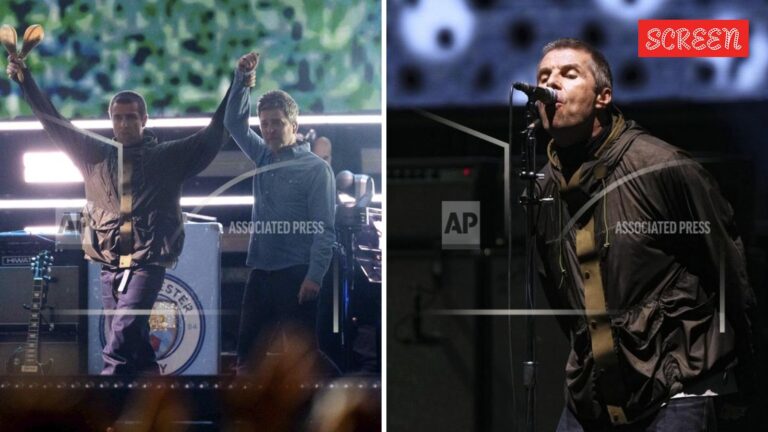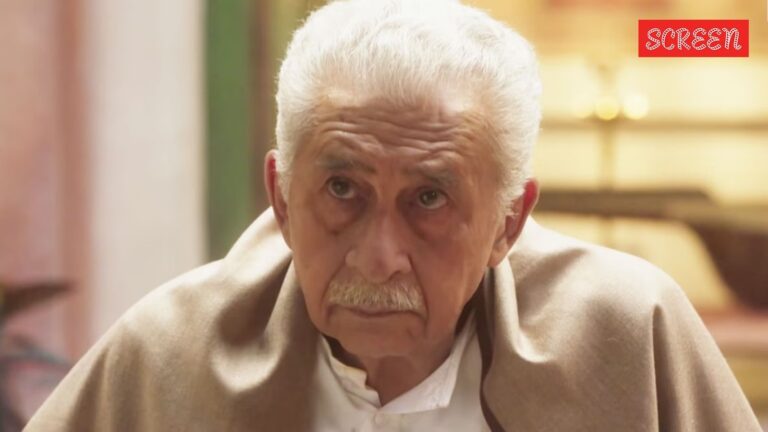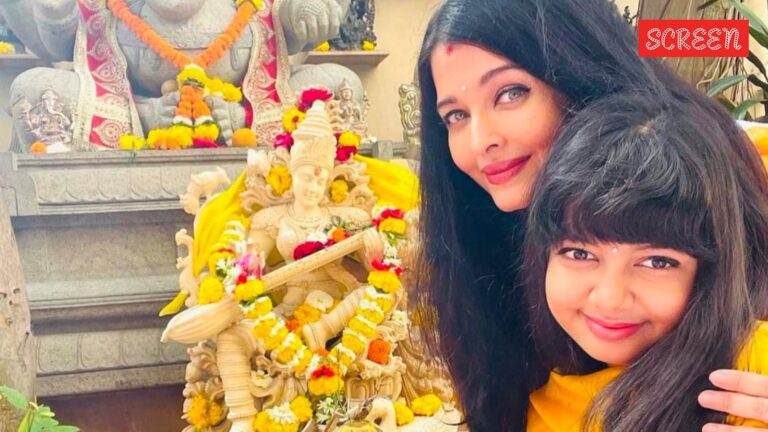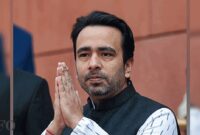Chaos is the currency for Anurag Basu. It is both the means and the end for him. It fuels him, until it finishes him. He builds from it, until it starts breaking him. He falls prey to it, despite knowing it will eat his creation. He strives for it despite knowing that it will eventually create dissonance. As much as he talks in interviews about how you can’t define an ‘Anurag Basu film’, but in truth, it is very much definable. In fact, in one pure word: chaos. As much as he says in his interviews that he is still figuring out his voice, but in truth, it is already formed. In fact, it can also be put into one word: madness. Madness not as loss of control, but as the only way to survive the noise. And he achieves this madness like an Imtiaz Ali protagonist, which is through music. Music becomes the map, the mirror, the method. If chaos is the question, then music is the only language he trusts to answer.
It is some delight to witness Basu and his long-time partner in crime, Pritam, return to the roots of the musical with their recently released Metro… In Dino, even after the commercial stumble of their last theatrical outing, Jagga Jasoos. As a spiritual successor to the now-iconic Life in a… Metro, the expectation was clear: music would play a major role. But what I didn’t anticipate was just how much of the film would be a musical, not simply driven by songs, but shaped and shaded by them. That’s the thing with Basu: he knows how to remain palatable, even familiar, and yet, out of nowhere, he jolts you with pure invention. For a significant portion of Metro… In Dino, there’s some joy in watching both Basu and Pritam abandon the metrics of box office logic and lose themselves in their own brand of madness. It is a some pleasure, especially in contemporary Bollywood, to see a filmmaker resist formula, to resist the pull of the customary, and instead, use a mainstream production banner not as a cage, but as a canvas for his unruly signature.
And what a mad musical canvas it is. As always, Basu doesn’t give a damn about cinematic conventions. Continuity is tossed into the air, spatiality is thrown out of the window, and temporality has no place here. You never realise when a rooftop performance by Pritam and his band, high above the city skyline, begins to dissolve into a sweeping introduction of the film’s principal characters. Each of them bending to the musical cues, breaking the fourth wall, singing their past and present straight into the camera’s eye. You never notice the moment you move from a vibrant Holi party in Bengaluru, where Thumri (Sara Ali Khan) dances in a trance of free-flowing joy, to Kolkata, where her mother Shibani (Neena Gupta) revels in colour at her own Holi celebration, then to Mumbai, where her other daughter, Kajol (Konkona Sen Sharma), argues in a car with her husband Monty (Pankaj Tripathi), while their daughter sits quietly in the back seat, struggling with her own adolescent anxieties. You never figure when the detour leads you back to Bengaluru, but this time, it’s another Holi party, where Akash (Ali Fazal), Shruti (Fatima Sana Shaikh), and Parth (Aditya Roy Kapur) lose themselves in music. And you never register when, amidst this glowing, music-drenched introduction of characters, he also throws sadness into the mix, as Parimal (Anupam Kher), alongside his widowed daughter-in-law (Darshana Banik), stares outside their Kolkata house.
That’s truly a lot. But Basu leaps from one track to another, one city to the next, one character to the other, with such absurd confidence that you can’t help but admire the sheer audacity of it. Jagga Jasoos was musical in its very syntax, every line, every cut, every beat rooted in rhythm. But here, he treats the medium almost like a Broadway musical, where reality shifts with the music. As the camera pulls back, the set rearranges itself in the background; as it pans, you move from a roadside walkway into a corporate alley; and as it tilts down, you fall from a sky-high highway, where characters are skydiving, straight into the middle of a wedding ceremony. There is no sense of geographical logic, and none is needed. It’s Basu’s world, a world where feeling overrides form, where emotion bends architecture. A world where youngsters in cafes sing out their dating adventures, and in another cafe, not far away, old lovers grieve their long-lost pasts in song. It’s a world as messy as it can get, perhaps just like falling in love, perhaps just like life itself.
It can be argued that the film truly peaks at the interval point. But through most of its second half, it begins to sag. The inventiveness slowly fades, the musicality vanishes, and the characters, much like Basu himself, begin to make strange, unconvincing choices. It feels as if someone whispered to him to hold back, to rein it in. It feels as if someone watched the second half of Jagga Jasoos and panicked, afraid he might wander down that wild, winding road once more. It feels as if a full stop had been imposed on a sentence still being written. So, the narrative, like the lives of its characters, begins to move in circles, aimless and without flavour, drained of the wild, unpredictable taste it once had. And this, in many ways, is the clearest reflection of a deeper issue in contemporary Bollywood: where big names in even bigger studios make the biggest decisions in the name of the commerce, but end up doing a disservice to the art. I don’t know who made Basu pause, but whoever it was missed the point entirely. Because what they fail to understand is that indulgence is his greatest strength. Because, unlike any other filmmaker working today, he can hear the music.

























